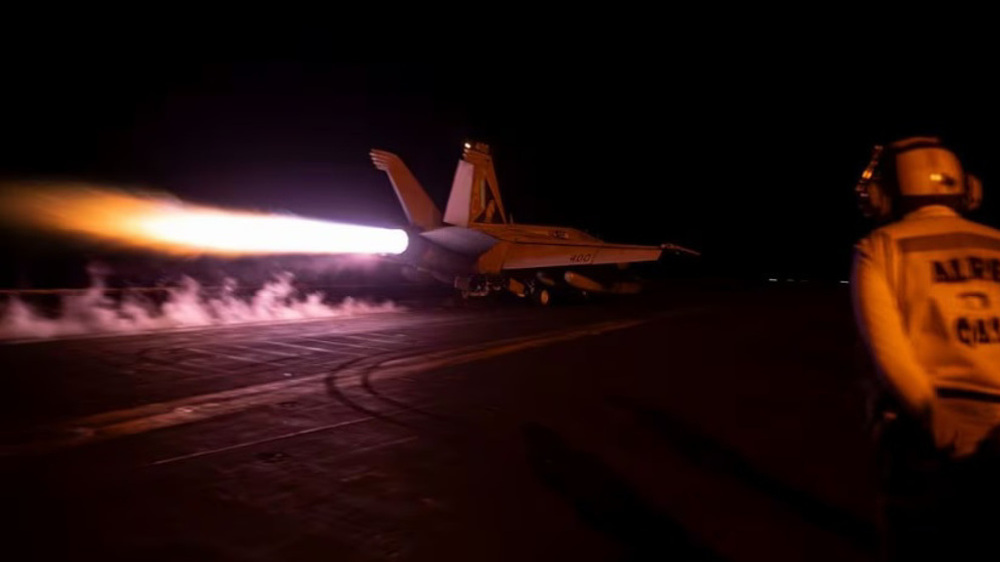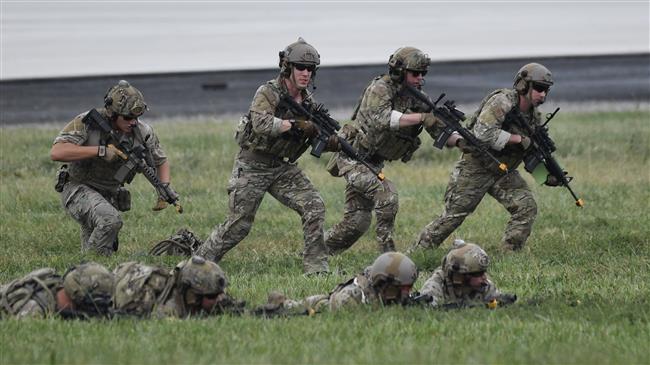F-35 testing delays continue even as US war plane has made its combat debut
The F-35 Joint Strike Fighter will not complete its already-delayed formal operational test phase this fall because of a setback in the testing process, according to a source close to the program.
While the F-35 Initial Operational Test and Evaluation (IOT&E) was supposed to be complete by late summer, a source with knowledge of its development said the testing is still incomplete due to an unfinished phase known as the Joint Simulation Environment.
The JSE simulations project characteristics such as weather, geography and range, allowing test pilots to prove the aircraft's "full capabilities against the full range of required threats and scenarios," according to a 2015 Director, Operational Test & Evaluation (DOT&E) report.
The F-35 Joint Program Office (JPO), in coordination with the Defense Department, confirmed that the Joint Simulation Environment testing phase is still being worked through, but could not provide a timeline for its completion.
"This final phase of IOT&E will occur when the JSE is ready to adequately complete the testing," DoD spokesman Air Force Lt. Col Mike Andrews said in a statement Wednesday. "The JSE is required to adequately perform F-35 IOT&E against modern adversary aircraft and dense ground threats in realistic scenarios."
The JPO and F-35 manufacturer Lockheed Martin announced Dec. 6 that all three F-35 variants belonging to the Air Force, Navy and Marine Corps would be field-tested "for the purposes of determining the weapons systems' operational effectiveness and operational suitability for combat." IOT&E had originally been set to begin in September 2018.
The latest delay raises doubts about when the stealth jet will hit its next crucial benchmark: expanded production.
IOT&E paves the way for full-rate production of the Lightning II despite the fact three U.S. services and multiple partner nations already fly the aircraft. Some versions of the F-35 have even made their combat debut. The Office of the Secretary of Defense will be the authority to sign off on the decision, moving the program out of its baseline low-rate initial production (LRIP) stage.
JPO spokeswoman Brandi Schiff said the JSE is in the process of integrating Lockheed's "'F-35 In-A-Box' (FIAB) model, which is the simulation of F-35 sensor systems and the overall aircraft integration." FIAB is the F-35 aircraft simulation that plugs into the JSE environment.
"This integration and the associated verification activities are lagging initial projections and delaying IOT&E entry into the JSE," Schiff said.
Lockheed Martin originally proposed a Virtual Simulator program for this testing. But in 2015, the government instead opted to transition the work -- which would become the JSE -- to Naval Air Systems Command at Naval Air Station Patuxent River, Maryland.
"DOT&E is not aware of any viable substitute for the JSE that would be ready sooner," Andrews said.
"Any substitute simulation would still require high-fidelity F-35, weapons, threat and environmental models to be able to provide the operationally representative scenarios and data required to complete IOT&E," he said.
Despite the testing delay, production continues, according to Lockheed.
"We have delivered on all requirements for this software to be integrated with NAVAIR's JSE and are providing our full support to ensure successful integration and testing as soon as possible," company spokesman Mike Friedman said Friday. "F-35 production continues to ramp up.
"We have delivered more than 425 aircraft to date, doubled production since 2016, met our annual delivery targets two years in a row and continue to increase production rates, improve efficiencies and reduce costs year-over-year," he said. "We are confident the enterprise is prepared for full-rate production and ready to meet growing customer demand."
(Source: Military.com)
Iran warns US against resumption of ‘maximum pressure’ policy
Israeli strikes kill 28 people in Lebanon
Hezbollah strikes major Israeli air force base for first time
Iran authorizes imports and sale of unleaded gasoline at free prices
Who said what about genocide in Gaza and Lebanon at OIC-Arab League summit?
More journalists killed by Israel in Gaza than in any conflict in recent decades: Report
Israeli attacks on Syria serious threat to regional stability: Iranian diplomat
Yemen carries out pre-emptive strike against US aircraft carrier













 This makes it easy to access the Press TV website
This makes it easy to access the Press TV website